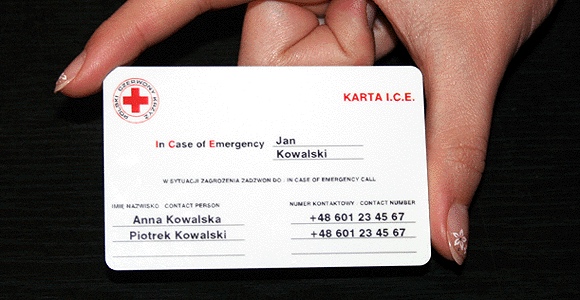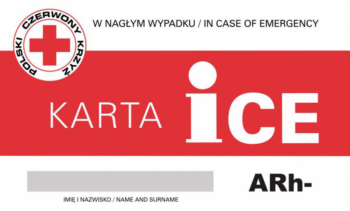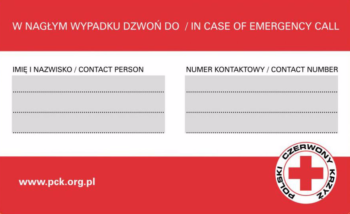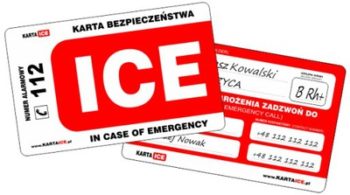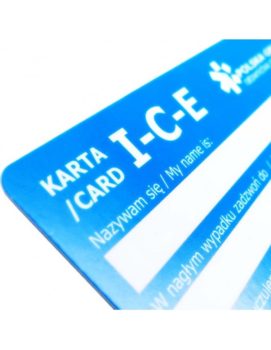
ICE card. What is it and why should you have it with you when going on vacation?
The first minutes of the incident often decide about the life or health of an accident victim. In many cases, when providing first aid, the rescuers' knowledge about the victim's blood type, chronic diseases or medications is invaluable. Often times, the victim of a mishap is unconscious, unable to communicate, and therefore also unable to conduct a basic interview.
In Poland, there is also no obligation to carry documents with you, in which you can find basic information about the victim, or contact details of people who should be informed in emergency situations, or from whom one can obtain at least some information about the patient's health condition.
In such situations, the ICE card, which is worth having with you, can be invaluable.
What is the ICE card?
The ICE card is a special card on which basic information about its holder is recorded, such as name and surname, blood type and contact details of people in the immediate vicinity.
The abbreviation ICE comes from the English words "in case of emergency"Meaning literally" in an emergency. "
Carrying a correctly completed card with you can save the health and even life of the injured person. Its content will make it much easier for people involved in the rescue operation, including rescuers and doctors, to provide first aid.
Who can be the user of the card and how to get it?
Any person, without exception, can be the card user. It can be carried by healthy people, children and the elderly.
Currently, you can buy ready-made card templates for self-filling on the Internet. You can also buy a special scratch card with a hidden code, by means of which you register your data on the PCK website www.pck.org.pl/ice After completing a dedicated form, the data will be printed on a plastic card, and it will be sent to the address provided.
The cost of such a card is a few zlotys, but in the event of an accident, it can be invaluable.
How to wear and use the card?
The ICE card is the size of an ID card and fits in any wallet, most phone cases or pouches. Nevertheless, it is best to have it at hand, e.g. in a shirt or jacket pocket, so that people involved in the rescue operation do not waste time searching.
Why is a card better than a phone?
ICE data can also be saved on the phone, in dedicated applications or as further entries in the phone book for people who should be notified in an emergency.
To make it easier to find the data, the selected contacts should be preceded by the abbreviation "ICE", e.g. ICE1 - wife, ICE2 - brother, etc.
However, it should be remembered that the phones operate on batteries that can discharge. They can also be damaged in an accident, and access to data stored on the phone is often blocked and secured with a password or biometric data. In such situations, the information stored on the mobile device will be useless.
A plastic card, on the other hand, will never stop working. No batteries needed, flooded or cut will still be legible.

